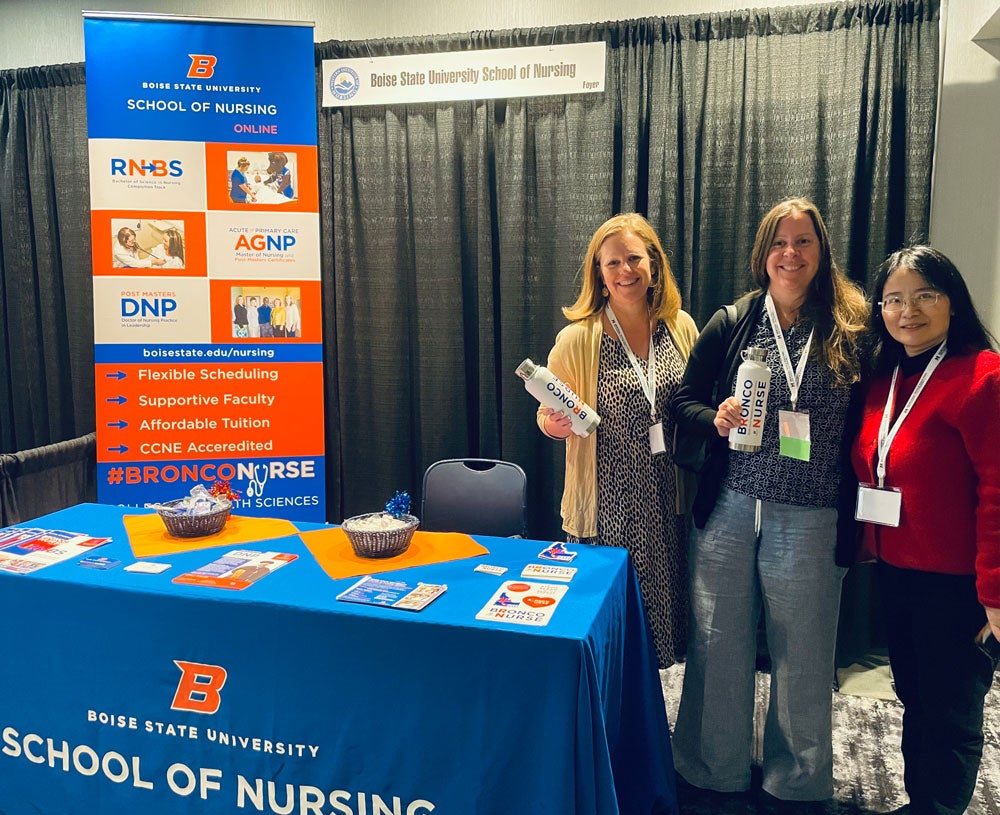Associate professor Cara Gallegos and a team of nursing researchers recently published two articles detailing findings on the quality of life, stress and depression in parents of chronically-ill children, as well as an article that describes a novel research methodology for understanding the experiences of these parents.
The team includes School of Nursing associate professor Kelley Connor, undergraduate research assistant alumna Lauren Zuba and Michael Aldridge, an associate professor at the University of Northern Colorado’s School of Nursing.
Their results spotlight the need to evaluate parental mental health.
“One of the things I would like to see us doing is evaluating parents for depression when they seek care for their child,” Gallegos said.
Of the parents surveyed, 62% reported some level of depression; 25% reported they were either extremely or severely depressed. They also found photo-journaling as a highly-effective tool for understanding parents’ stress and coping.
The articles are published in Journal of Pediatric Nursing and Journal of Modern Nursing Practice and Research. Gallegos and Zuba have two more articles under review for publication, as well.

The research lifecycle
With a background in pediatric critical care and parental coping, Gallegos recognized that caring for chronically-ill children will inevitably affect parents’ mental health. This presents a serious societal problem, considering almost 20% of children in the United States under age 18 have a chronic illness.
Put another way, that’s affecting the parents of over 14 million children.
So to understand their experiences, the team gathered data through two studies. The first was a quantitative survey, followed by an optional qualitative photo-journaling and interview portion.
The team then produced several articles summarizing their findings, two of which were presented at the Western Institute of Nursing conference this past April.
Future research increases applicability
Gallegos recruited study participants through the non-profit organization Rays for Rare, which supports families of medically fragile children. However, like all research methods, Gallegos acknowledged that this type of sampling (known as convenience sampling) comes with its own limitations.
Since data collection was limited to parents who already sought support from an external organization, these parents may have effective coping mechanisms already in place. This sample could skew results to make it appear as though the average parent doesn’t have difficulty coping.
Additionally, since the second phase of the study included photo-journaling and reflective interviews, the study “creates bias because people who wouldn’t necessarily do these things may not participate in the study,” Gallegos said. “So then you don’t really understand what helps those people or what those people are experiencing.”
To increase the applicability of future research, Gallegos hopes to conduct an intervention study with a larger and more diverse sample. She plans to partner with St. Luke’s Children’s Hospital since the health system provides care for chronically-ill children across the entire state of Idaho.
“My hope is that once I get a couple more studies done, then I can work with the providers at clinics to embed some of this in their care, which is more translational or implementation science,” Gallegos said.
Moving knowledge to implementation
Rarely do researchers directly affect patient care. Instead, they typically produce what’s known as generalizable knowledge: information that contributes to the foundation of a particular subject.
It’s up to someone to intentionally translate and implement that foundation into regular practice.
This creates a research-practice gap, or the years that elapse between when research is published and the beginning of its implementation, which is typically about 20 years.
“That’s actually where the [Doctor of Nursing Practice] degree came into play, because there’s all this research out there and nobody is looking at it and implementing it in practice,” Gallegos said. “[Doctors of Nursing Practice] are the experts on translating evidence into practice.”
Gallegos is a professor in the Doctoral of Nursing Practice in Leadership program. Her goal is to partner with recent alumni to implement the research findings in clinical settings.
“Not assessing for it doesn’t mean it’s not there,” she said, “So my hope is that if we assess better, we can have a better idea of what’s needed and then we can provide the support or interventions needed to get help.”